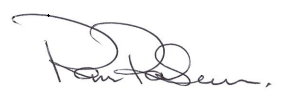
15 October 2018
Teri Marie Brown
By email:
[FYI request #8699 email]
Dear Teri Marie
Official Information Act Request – supplemental response 2
We refer to your message dated 17 September 2018, timed at 10.23pm, addressed to
Victoria University of Wellington (
the University), in which you requested the following
information under the Official Information Act 1982 (
the Act):
“Dear Victoria University of Wellington,
In your response to by (sic) previous OIA you responded that the tutor was not a
permanent employee. Yet in your contract for services policy you state a contractor
should not be undertaking a core activity of the university. see (sic) below
So how do you engage tutors - employees, contractors, suppliers or some other means.
Surely they don't work for free. Do you have a standard agreement of some sort for
engaging tutors - are you able to provide a copy.
Or to put it bluntly why was a tutor who had been harassing a student handle (sic) as a
student to student harassment. If a tutor was harassing a member of staff such as yourself
would this also be handles (sic) as a student matter or an employment matter. Would it
have not been more appropriate for VUW to have handled this matter under the
"GUIDELINES FOR RESOLVING ALLEGED MISCONDUCT"
Contract for Services Policy
In principle a Contractor should not be undertaking a core activity of the University (for
example: teaching, tutoring, curriculum development, and research work); or
performing services exclusively for the University (see Appendix A: Status Criteria),
which also applies to former staff who have resigned applying to contract back to
undertake similar work.
Yours faithfully,
t s brown”
As explained in our response dated 17 September 2018 (Response to the Second Request),
at the times that the events complained about occurred and were considered by the
Disciplinary Committee, the person who was the subject of the complaint was a student at
the University, and not a tutor. The University is refusing to provide further details in
relation to the individual in question under section 9(2)(a) of the Act, on the ground that
withholding this information is necessary to protect the privacy of natural persons. Before
reaching this view, the University has considered whether, in the circumstances of this
particular case, the withholding of information is outweighed by other considerations
which rendered it desirable, in the public interest, to make that information available, and
has determined that it is not.
Individuals are employed or engaged by the University from time to time to undertake
various work, for the University and/or to provide a variety of services to the University.
The type of agreement, and the status of the relationship between an individual and the
University, will depend on a number of factors, including the type or work or services
required, and the duration for which such work is to be performed, or services provided.
Individuals who are employed as tutors, who choose to join the Tertiary Education Union
(TEU), and whose work is covered by the collective agreement for tutors that the University
has concluded with the TEU are subject to the terms and conditions of that collective
agreement for the duration of their employment as a tutor. A copy of the current collective
agreement for tutors between the University and the TEU can be accessed via the following
link:
https://teu.ac.nz/wp-content/uploads/2018/01/VUW-Tutors-CA-1Sep17-to-31Jan20-
SIGNED.pdf An individual who is not employed as a tutor and/or who is not a member of the TEU may
be employed, or engaged, on different terms and conditions.
Tutors (with the exception of Senior Tutors) are typically employed on fixed term
employment arrangements, where the employment relationship with the University ceases
automatically at the conclusion of the fixed term specified in the offer of employment.
Where the University receives a complaint about behaviour by a member of the University
community, the University will consider the appropriate procedure(s) to follow to
investigate and, if appropriate, take further action in relation to that complaint.
Where there is not a current employment relationship between an individual whose
reported behaviour is the subject of a complaint and the University, an employment
process would not be suitable. This is because, amongst other things, the employment
rights, duties and obligations between employee and employer have ceased to apply. In
such cases, the University will nevertheless consider whether there are any other actions
that it may be able to take to inquire into the complaint and, if wrongdoing is found to have
occurred, to take appropriate measures to address the complaint under other applicable
procedures.

Under section 28(3) of that Act you have the right, by way of complaint to an Ombudsman,
to seek investigation and review of the University’s refusal to provide you with further
specific information relating to individual who the University understands was the subject
of your request.
Yours sincerely
Pam Thorburn
Director Student Academic Services

